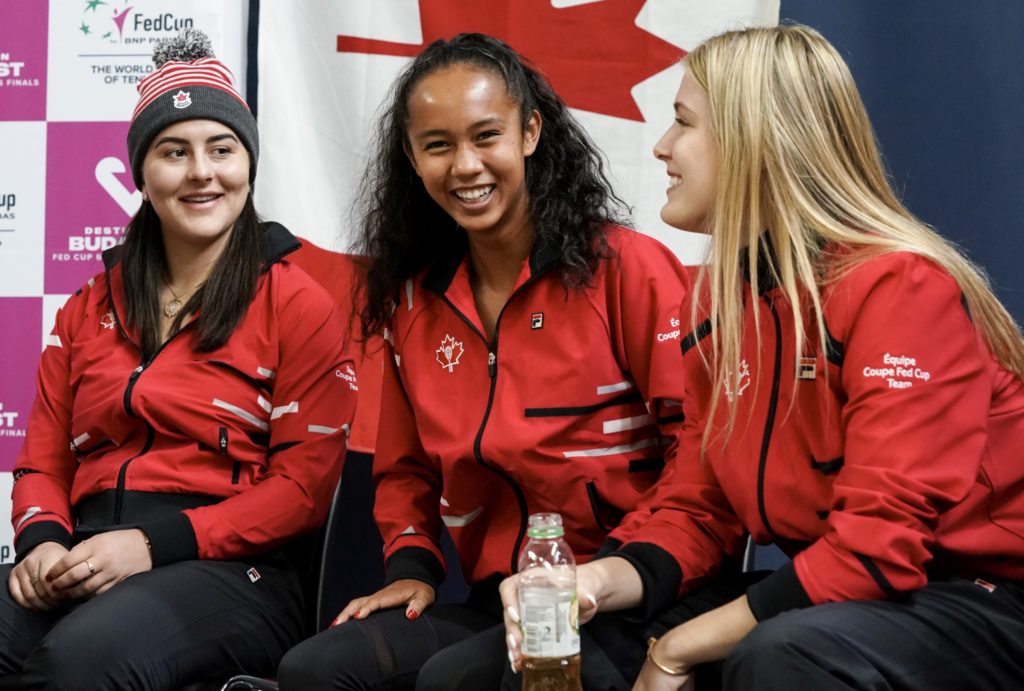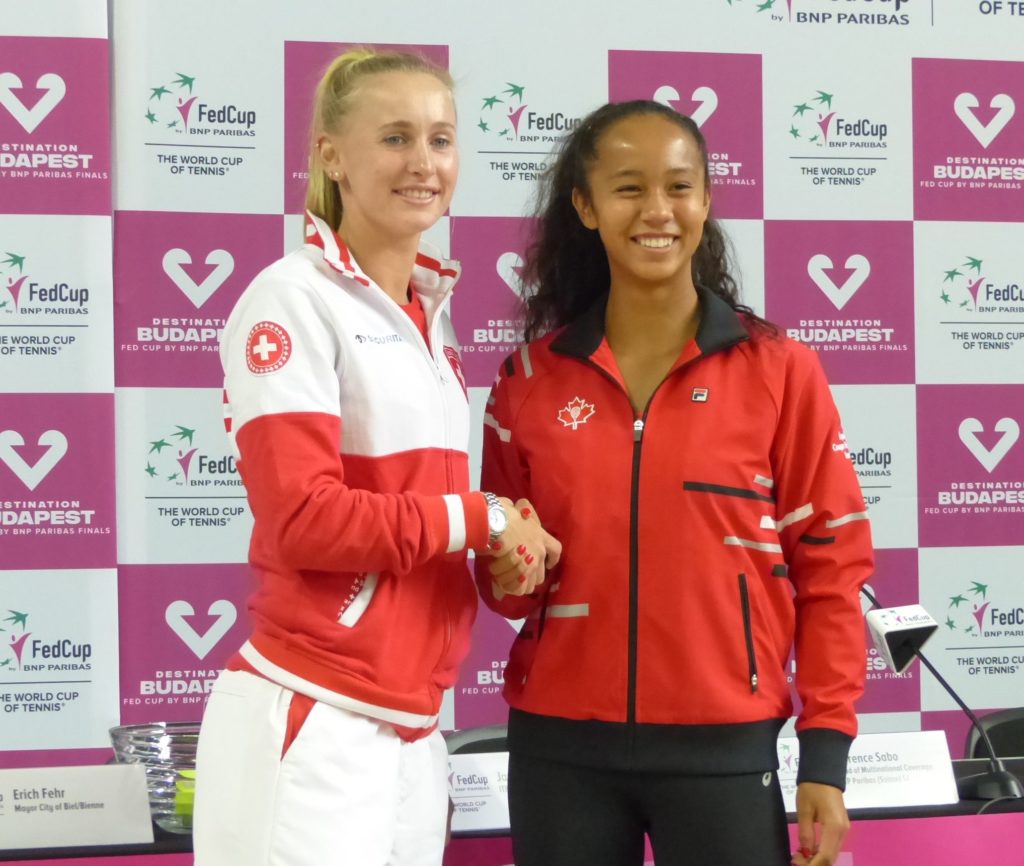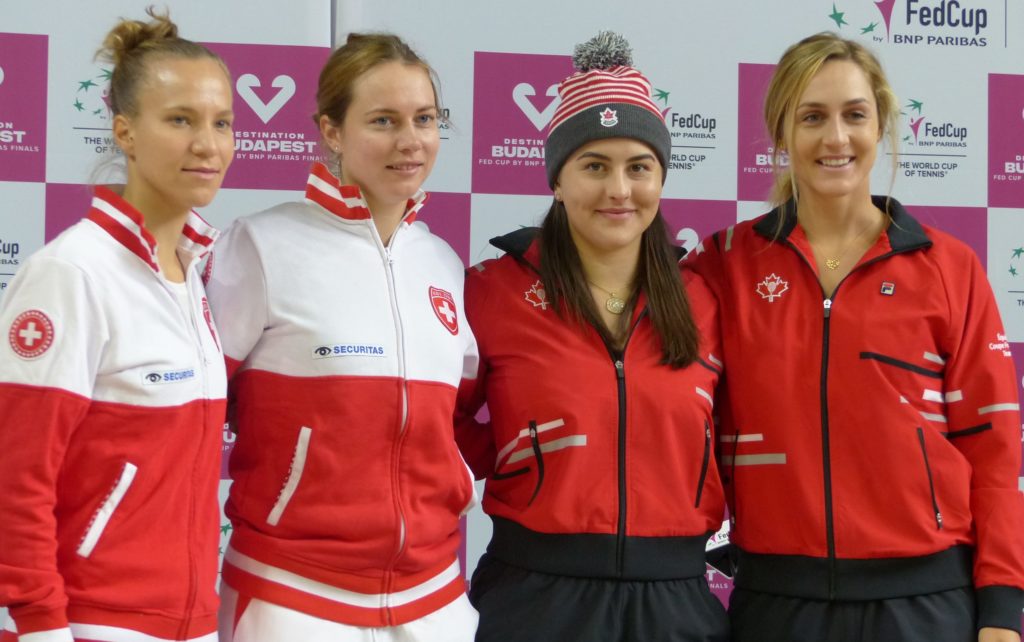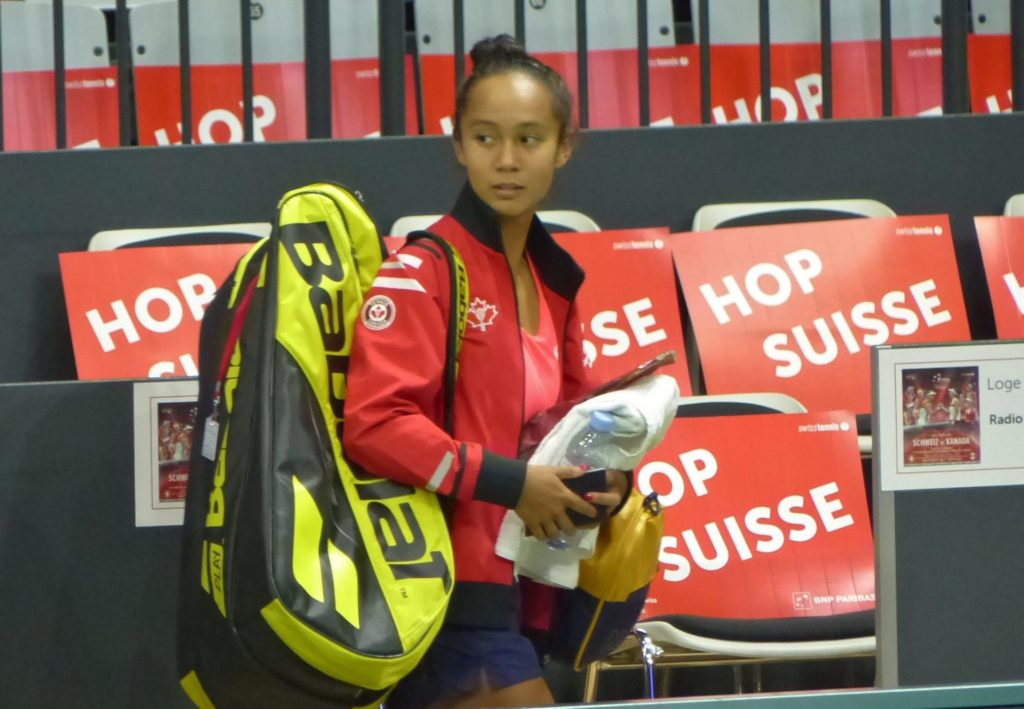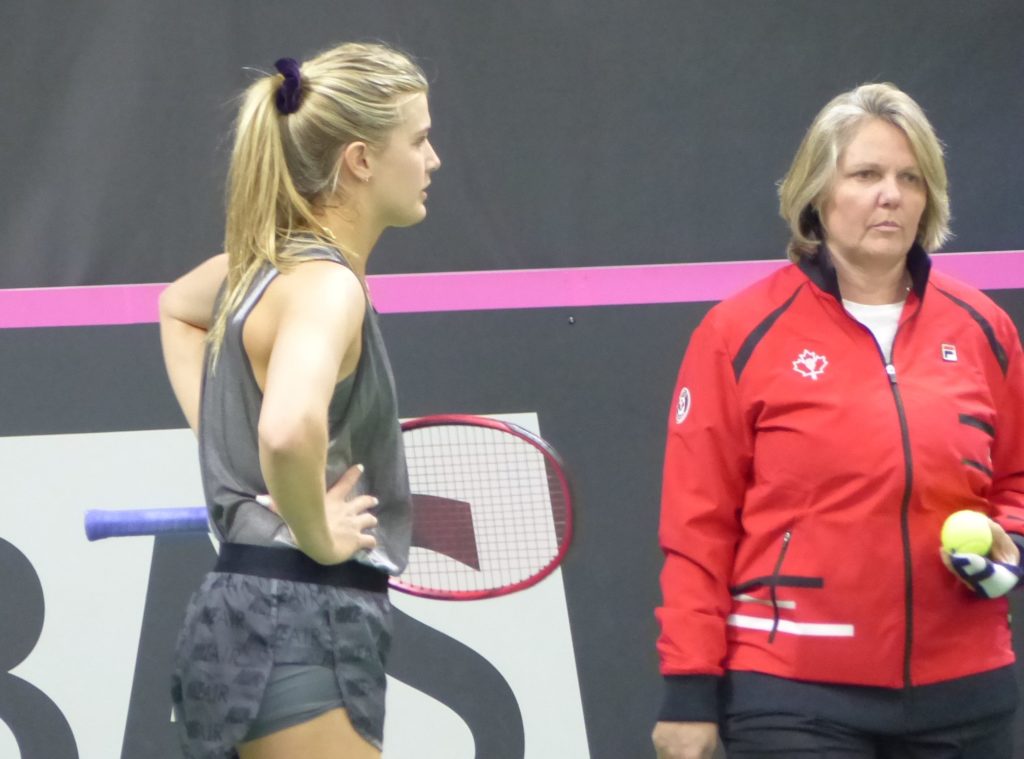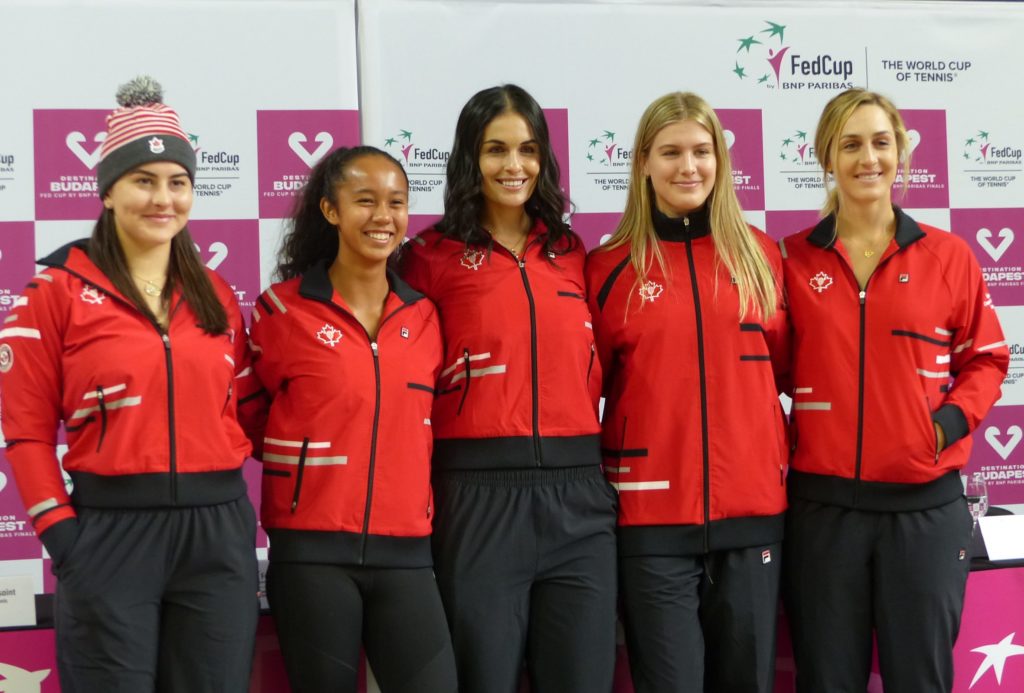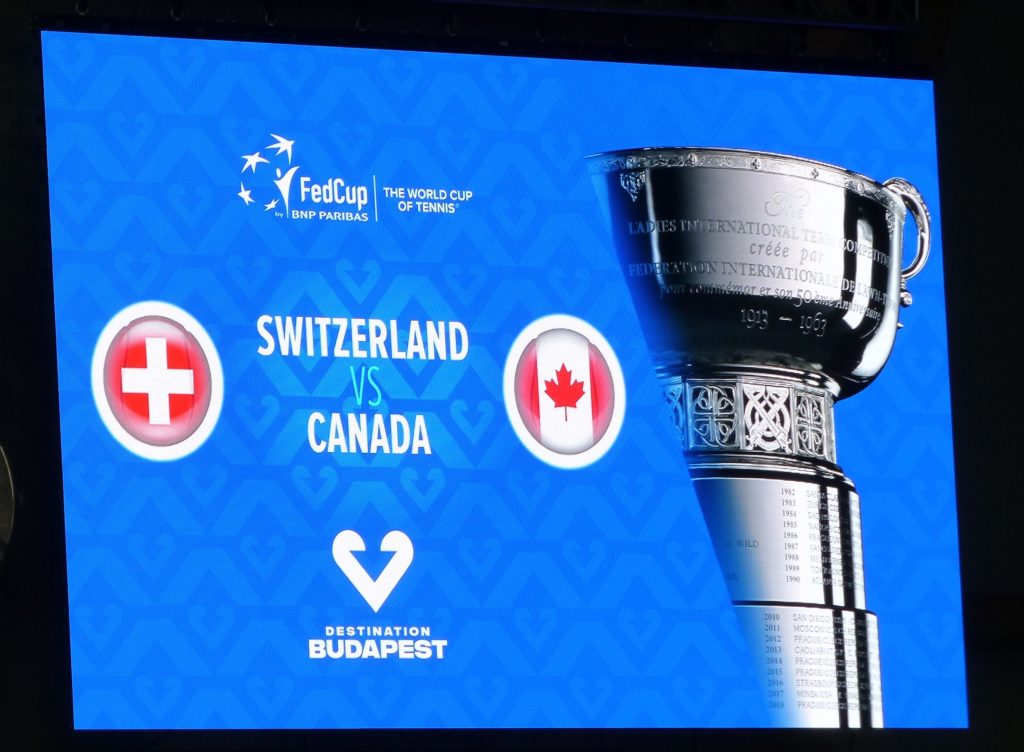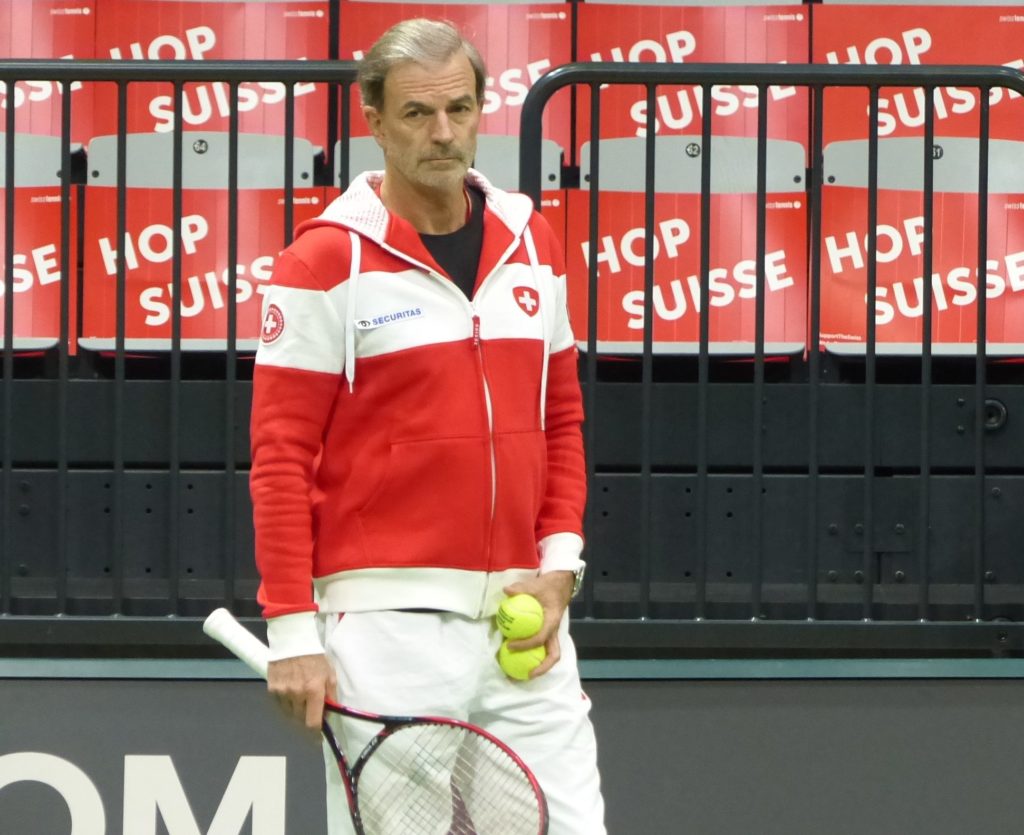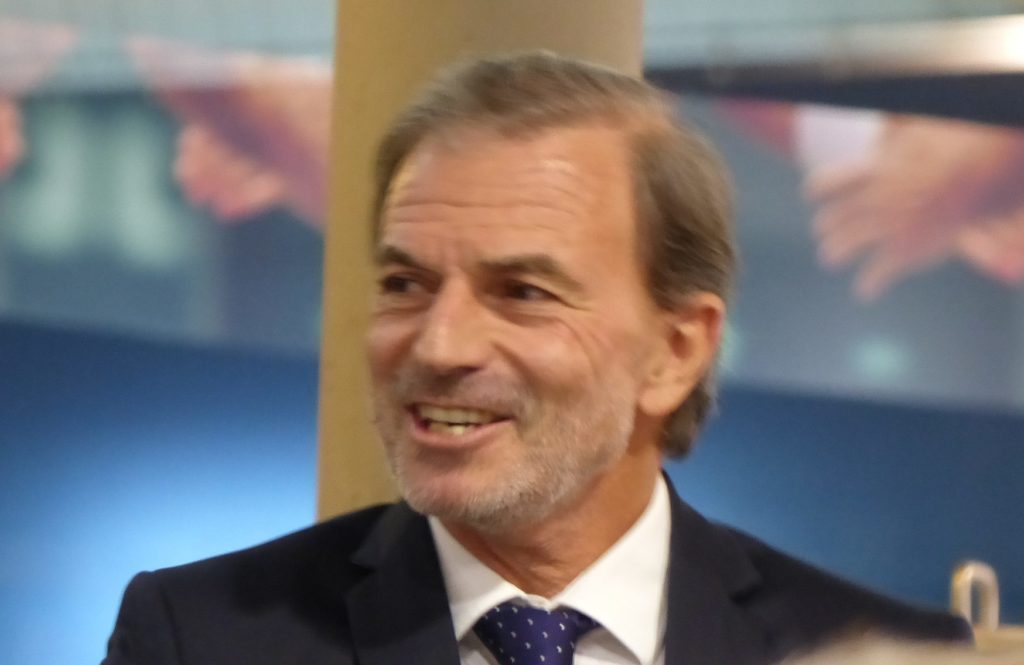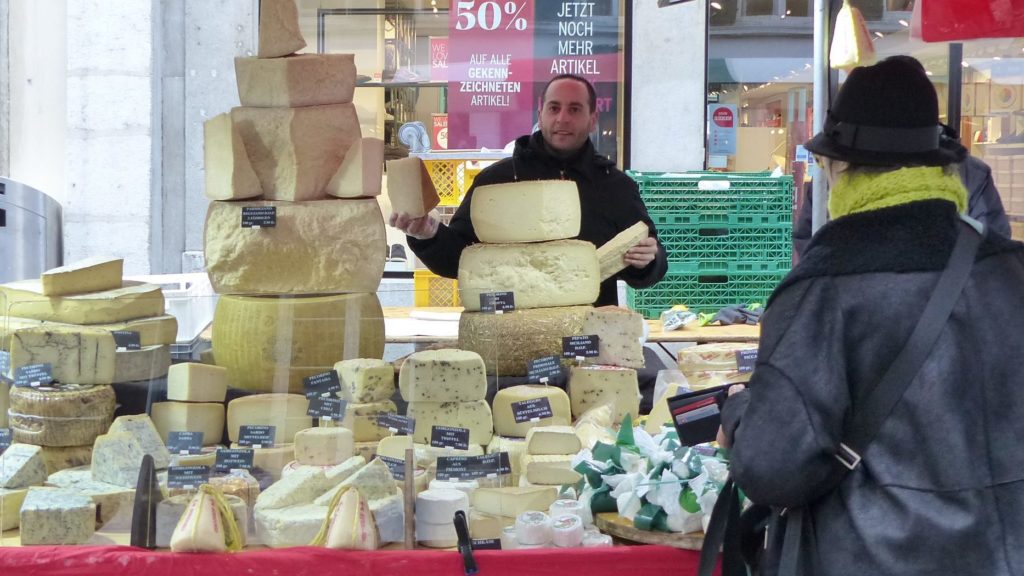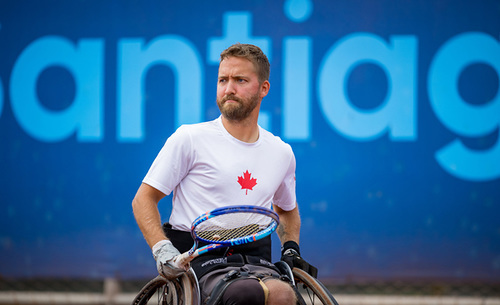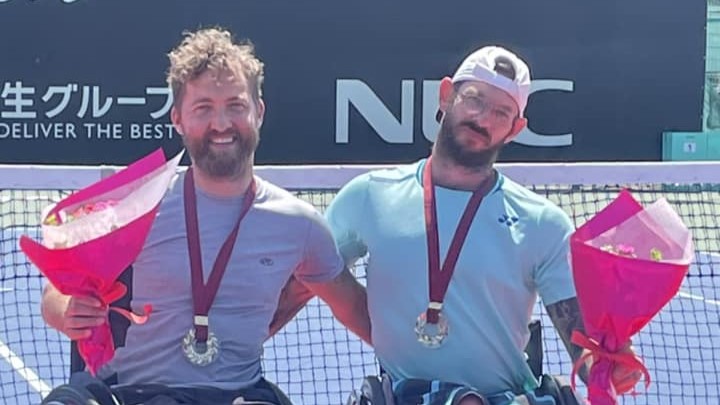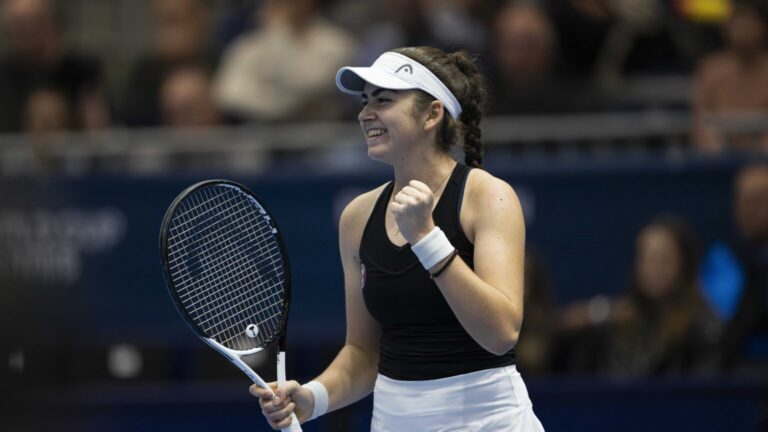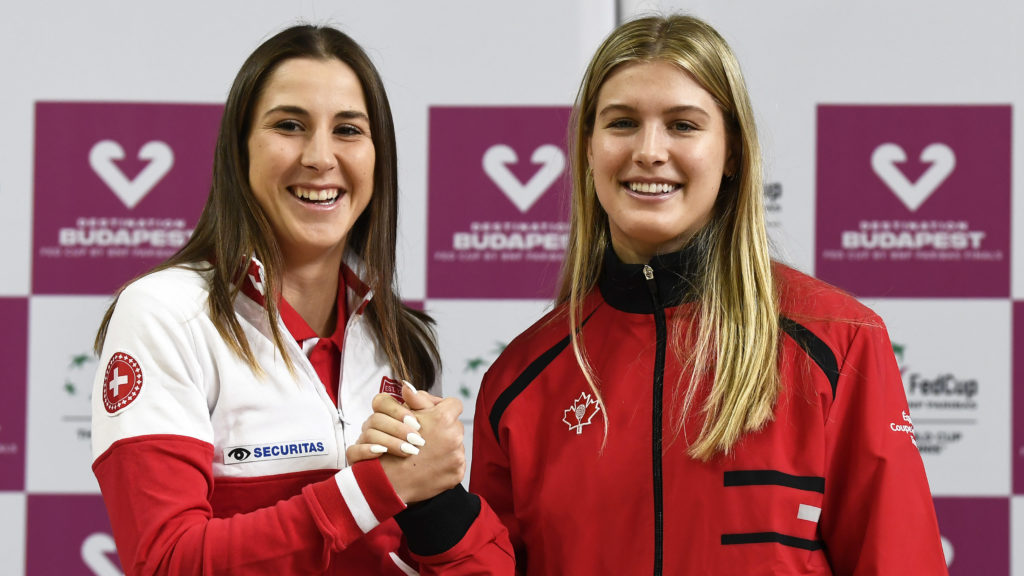
||||||||||
It’s no surprise, considering the doubts floating around all week, that it will be Leylah Annie Fernandez and Genie Bouchard playing singles for Canada in the Fed Cup tie beginning Friday in Biel, Switzerland.
That was confirmed at Thursday’s draw ceremony when it became known Bianca Andreescu is not ready for the Qualifiers tie being held at the Swiss Tennis Arena.
Andreescu has battled a left-knee issue for three months. Canadian captain Heidi El Tabakh explained, “we had to make a tough decision, had to be a last-minute decision with Bianca’s injury. Time was against us for this tie. We weren’t going to have her play unless she was 100 per cent or close to 100 per cent for singles. She’s not quite there yet but she’s close. So we don’t want to take our chances and have a big setback.”
The decision was not unexpected by the Swiss team, with captain Heinz Gunthardt saying about Andreescu’s participation, “we assumed that maybe it was 50-50 before we got here. The first day there were rumours that she wasn’t really practising the way she would normally practice. So we thought maybe it was like 20 per cent that she plays – so it wasn’t a surprise. Of course it makes us a bigger favourite than if she’s playing at 100 per cent. She’s one of the best players in the world. That’s a loss for Canada but you still have to win three matches to qualify. And the team that Canada has is really talented.”
“I’ve been injured quite a lot the past couple of months,” the 19-year-old Andreescu said. “It’s just super-disappointing but I try my best to stay positive.”
That team is now led by a 17-year-old ball of energy and determination named Leylah Annie Fernandez. She ranks No. 185, well behind No. 6 Andreescu but ahead of No. 267 Bouchard, and so becomes the team’s No. 1. She will face No. 68-ranked Jil Teichmann, the Swiss No. 2, in Friday’s first match at 2 p.m. (8 a.m. ET in Canada).
“Leylah is a young, upcoming player who’s fearless on the court,” said El Tabakh. “She played her first Fed Cup tie last year against the Czech Republic so she’s had that experience. Genie plays her best tennis in Fed Cup and if she plays her best she’s very tough to beat. I’m confident in my decision – it had to be done.”
When a Swiss reporter asked if there could be any change to the singles players on day two, El Tabakh was emphatic – “not for singles, no.”
The announced doubles pairs are Gabriela Dabrowski and Andreescu for Canada and Viktorija Golubic and Stefanie Voegele for the Swiss.
There had been speculation about which player Gunthardt would select as No. 2 behind Belinda Bencic, who currently is at a career-high No. 5 WTA ranking. “She played the best of all of them,” Gunthardt said about deciding on the 22-year-old Teichmann. “She’s No. 2 (in rankings) on the team and she practised really, really well. So you would have to look for a reason not to put her in the team which would mean that I don’t trust her to produce her A-game when it counts. The main reason is I thought her time has come.”
Teichmann, on the team since 2018, has two wins in doubles but will be making her debut in Fed Cup singles.
“It’s going to be different, obviously,” Fernandez said about facing a fellow southpaw like Teichmann. “I haven’t played many lefthanders in my short career. But I’m excited and I can’t wait to play tomorrow.”
Bouchard and Bencic played twice in 2015 with the 22-year-old Swiss winning both times. But that’s ancient history now, so ancient that Bouchard couldn’t recall if that had previously met.
“It will be really tough,” she said about what lies ahead for the Canadian team as she plays in her 11th tie since 2011 with a 12-4 record in singles and 1-0 in doubles. “Switzerland is the favourite they have players that are ranked much higher than us who are playing tomorrow (Friday). I believe in our team and we have to go in with the underdog mentality, try to fight and do anything we can to win. I’m looking forward to competing against a top-10 player – it will be a good match for me.”
Bencic is playing for the first time since a humbling 6-0, 6-1 loss in 49 minutes to No. 31-ranked Anett Kontaveit of Estonia in the third round of the Australian Open. Asked if he had any worries about any fallout for Bencic after the disappointment against Kontaveit, Gunthardt said, “absolutely not. Belinda is a terrific player and days like that just happen. One plays well and the other one doesn’t and it can go very quick at times, especially in women’s tennis because you can’t protect your serve as much as a man could. I don’t think that has any influence on the next match.”
At stake on Friday and Saturday is a spot in the inaugural Fed Cup Finals in Budapest from April 14 to 19. The loser will move on to a Play-Off to retain their place in the Qualifiers for 2021.
Canadian viewers can watch the Canada – Switzerland action on Sportsnet One in English or on TVA Sports in French starting at 8 a.m. ET on Friday.
Canada leads the Fed Cup head-to-head 3-2 but the Swiss won the last meeting 3-2 at the Dorval Tennis Club in Montreal in July, 2004. That event marked the debut of a new Tennis Canada president named Michael Downey. He has remained, except for a three-year (2014-2017) term as chief executive of the Lawn Tennis Association in Britain, in that position to this day.
HEINZ GUNTHARDT – SWISS TENNISMAN
Heinz Gunthardt, the Swiss Fed Cup team’s captain, is a well-known figure in his homeland. As a player he won five tour titles and had a high ATP ranking of No. 22, won the 1985 Wimbledon doubles with Balazs Taroczy of Hungary and coached the legendary Steffi Graf of Germany to 12 of 22 her career Grand Slam titles. These days the 60 year old maintains a high profile in Switzerland as a television broadcaster covering international tennis events for the national Swiss German network.
TT: Is there a favourite story you tell people about your years coaching Steffi Graf?
HG: There are many stories. I was with her for eight years so it would be kind of unfortunate if there would just be one.
What impressed me about her was her dedication to the game and how much she loved to play. One year she won Wimbledon and as a celebration we basically just went out there the next day and just hit balls for 30 minutes, which was extremely unusual but it was a fun thing to do – hitting a few balls at the spot where you just won another great title. It was hitting a few balls and not having to hit them in. That was quite an interesting 30 minutes.
TT: When did you first become aware of Roger Federer?
HG: I’d heard about him before but when he won junior Wimbledon (1998). That was the first time I saw him play.
TT: So you knew then he was going to win 20 Grand Slam titles and be the greatest player of all-time?
HG: No, I did not know that but there was something unusual about him in the way he moved and hit the forehand. It wasn’t like he was hitting all of them in but I thought if he does, he starts doing that – because he was moving so efficiently and he was hitting the right spots – there’s a different feel when you see a player like that. It doesn’t mean you’re certain he’s going to become a top player because there are so many things that can go wrong, but certainly the talent was very apparent.
TT: What do you think the Swiss system did for him? Would he have become a great player anywhere, or was there something about the Swiss system that helped him realize his potential?
HG: It’s not a question of the system – but along the way you can make many mistakes and Swiss Tennis didn’t make any. With someone like that with that talent you have to give him court time and reasonable coaches. You don’t need to have a great coach, just install some kind of discipline in the whole thing. And then if you have enough sparring partners, he most likely is going to become good anywhere as long as you keep him motivated. It’s rather easy to de-motivate juniors by having them play a certain way or telling them they have to do this or that. That at times may be correct for a certain person but not for another one. When he was young he had a reputation for being a little bit lazy. I doubt he was lazy – it was just that he made it look easy.
TT: Are there other Swiss players that you think had the talent to also be great?
HG: It’s hard to know because how do you define talent? It’s a combination of many things – one is having the physical talent and then also the desire to go out there and actually do it. Ambition is part of it – it has to be. Because you’re trying to push the limits – and the combination with that makes a great champion. In Roger’s case what’s unique is that he’s extremely ambitious, or obviously he wouldn’t keep on playing at his age (38). But then he’s also able to switch it off and be very relaxed. For me, that’s the main reason he’s had such a long career and also part of what’s unique about him.
TT: Canada has two players with tremendous potential in Denis Shapovalov and Félix Auger-Aliassime. What do you think of them with what you have seen so far?
HG: Shapovalov is really special because he can get really hot, but he can go really cold too (laughs). If he can stabilize his tennis a little bit – meaning that he will lose fewer matches which gives him more opportunity to become hot – he could be a world beater. But that’s easy to say but difficult to do.
Auger-Aliassime is much more stable as a player – he doesn’t run as hot and as cold. It will be interesting to see where the two go because at the same time when you’re more that type (Auger-Aliassime) at times you try to control things maybe too much. So the up side is not as great. It’s interesting to watch the two because both of them can absolutely win Slams when it comes to pure ability.
SWISS POST CARD
Ever heard of Swiss cheese?
